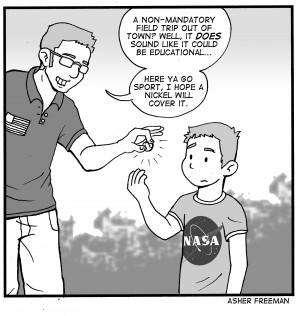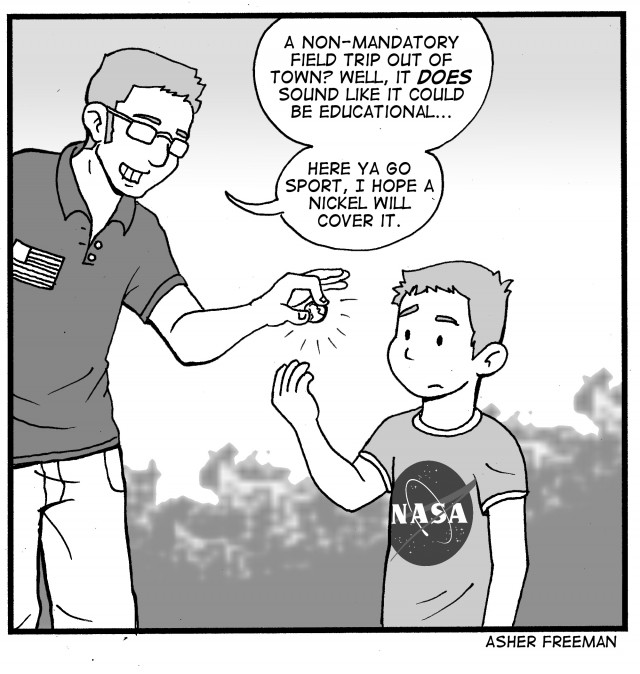 One of the most enduring legacies of modern patriotism in America, the National Aeronautics and Space Administration has been a leading force in science and technology throughout the 20th and 21st centuries.
One of the most enduring legacies of modern patriotism in America, the National Aeronautics and Space Administration has been a leading force in science and technology throughout the 20th and 21st centuries.
For four of the past five years, however, the organization has faced budget cuts that have made it more difficult for NASA to conduct its research. If budget cuts continue in this same manner, NASA may soon cease to exist.
NASA’s long legacy is one that can be rivaled by few. From emergency blankets and water filters to wireless communications and cordless power tools, NASA and its affiliates have filed over 6,300 U.S. patents that the average American comes into contact with on a daily basis.
Despite these great achievements, opponents criticize NASA as being an organization that is bureaucratic, inefficient and disconnected with reality. As a result, NASA continues to receive budget cuts by Congress annually that keep it from performing many of its core duties and continue work on a variety of critical projects and goals. This past year alone, the federal government cut NASA’s annual budget by over $888 million.
NASA has come under intense scrutiny by the American public for a variety of reasons. First and foremost, opponents of the organization claim that funding NASA is simply a waste of taxpayer money. For many, it appears as though NASA is using taxpayer dollars to fund research that doesn’t benefit the average American. From exploring the solar system to collecting dust samples from comets passing by earth, it can be hard for Congress to justify to constituents just how this research will benefit them personally or better their everyday lives.
Another popular talking point in opposition of NASA is the perception that the organization lacks a unified vision, and therefore a motivation to continue its work. At the time of NASA’s inception, the organization had an all-encompassing goal designated to it by the federal government. From Mercury to Gemini to Apollo and beyond, NASA had a prominent place in the mind of the average American. However, with the end of the Cold War, the Space Race and the retirement of the shuttle program, it appears to many that NASA no longer has clearly defined goals.
It may be true that NASA no longer has a large, public program or mission, such as was true during the Apollo and shuttle programs. To supplement that, however, NASA has continued to perform cutting-edge research at the farthest reaches of our solar system. From collection of soil and atmospheric gases on nearby planets to the mapping of faraway planets and galaxies by imaging satellites, NASA continues to push aerospace and astrophysics beyond the limits of our current understanding.
If anything, NASA is an organization that both has acted and today acts as a pioneer wandering into the realm of the unknown. Beginning with the Apollo program in the 1960s, NASA has always been on the cutting edge of science and modern technology. To decrease funding to NASA would be disastrous to both fields.
No matter what organization it is compared it with, there are a few (if any) that have touched the lives of everyday Americans in the way NASA has.
Not only should we continue funding NASA, but we should also strive to give the organization increased annual funds to continue its pursuit of being at the leading edge of modern science and technology.



